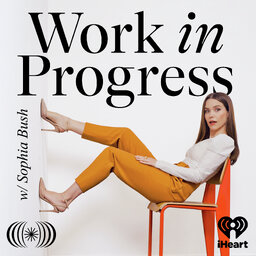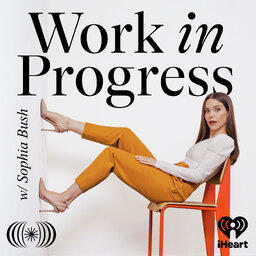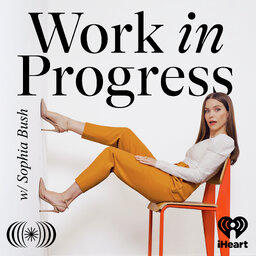aylor Jenkins Reid is the New York Times Bestselling author of Daisy Jones and the Six and The Seven Husbands of Evelyn Hugo, as well as One True Loves, Maybe in Another Life, After I Do, and Forever, Interrupted. Her newest novel, Malibu Rising, is out today, June 1st! Taylor joins Sophia to talk about how realizing she wanted to be in casting shaped her trajectory to create characters herself, how she turned her short story into her debut novel, and the pivotal moment she decided not to give up on her writing dreams.
Taylor Jenkins Reid’s favorite books mentioned:
Normal People by Sally Rooney
Everything I Never Told you and Little Fires Everywhere by Celeste Ng
The Patron Saint of Liars and The Dutch House by Ann Patchett
In 1 playlist(s)
Work in Progress with Sophia Bush
Work in Progress with Sophia Bush features frank, funny, personal, professional, and sometimes even …Social links
Follow podcast
Recent clips

Work in Progress: Jeannie Mai
55:24

Work in Progress: Mika Brzezinski
1:01:11

Work In Progress: Sophia answers fan questions
23:52
 Work in Progress with Sophia Bush
Work in Progress with Sophia Bush